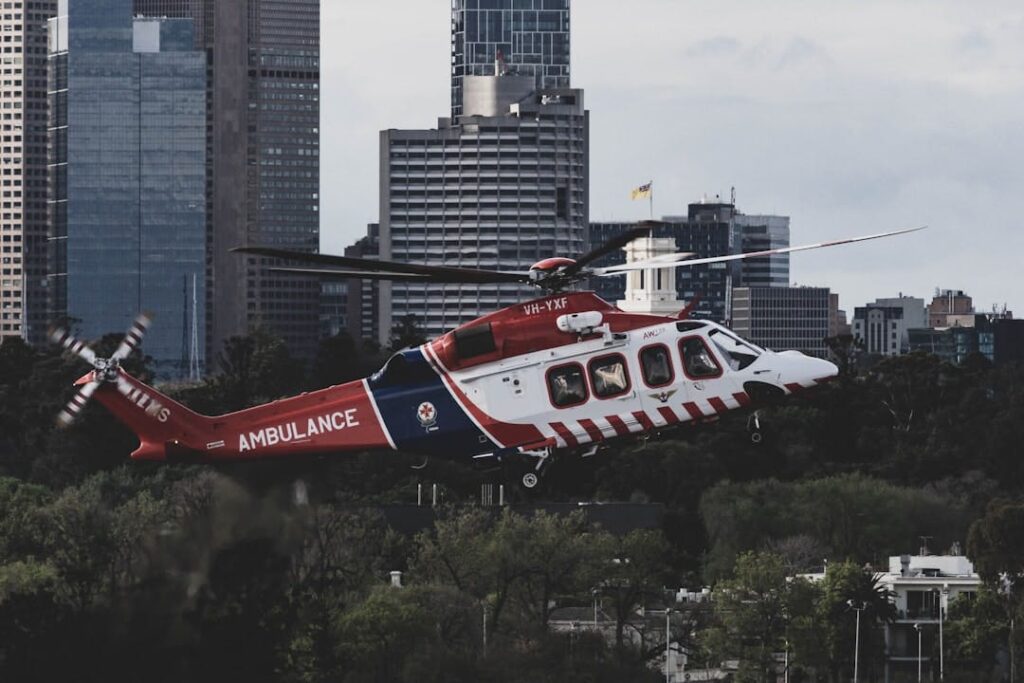
Fuelling the Frontline - Understanding the Eating Habits of First Responders
Food for Shift Workers – The Struggle is Real
You play a crucial role in the lives of others—stepping into chaos with clear heads and quick decisions. But in the middle of all that intensity, your own needs can get left behind—like food.
When you’re juggling back-to-back callouts, traumatic scenes, and an ever-changing schedule, eating well can feel impossible. Meals become something you cram in between crises—or forget altogether. It’s no surprise your eating patterns might feel out of whack.
In this article, we’ll break down what’s actually going on with your food habits, why shift work makes it harder to eat well, and how to make small, practical changes that don’t pile more pressure onto an already demanding job.
Why Eating Feels So Hard on the Job
If you’ve noticed eating feels more complicated since starting shift work, you’re not imagining things. Studies show shift workers face more challenges with food—and the health ripple effects that come with it—than those working regular hours.
- In a survey of registered nurses and midwives, 9 out of 10 believed their diet could be healthier.1
- The prevalence of type 2 diabetes in shift workers (6.6%) is higher than in day workers (4.2%).2
- Shift workers are significantly more likely than day workers to be overweight due to a poor diet.3
These challenges don’t come out of nowhere. They’re the direct result of how your job works—the pressure, the unpredictability, the hours. To get a clearer picture, let’s break it down into three key areas where shift work collides with nutrition.
The On-the-Go Nature of the Job
The unpredictable rhythm of emergency response work creates very real obstacles to maintaining good nutrition.
- Emergency calls can interrupt meals at any moment
- Break times are rarely guaranteed
- Food choices are limited to what’s available near your station or route
- Eating often happens in vehicles between calls
- Meals must be consumed quickly—sometimes in under five minutes
When you’re constantly racing against the clock, it’s no wonder that drive-throughs, vending machines and packaged snacks become the default choice. These options provide quick energy, but they often lack the nutrients needed to support the physical and mental demands of your job.
Stress and Emotional Eating
The emotional toll of first response work can significantly impact your relationship with food.
- High-adrenaline situations trigger stress hormones that affect appetite
- Witnessing trauma can lead to emotional eating for comfort
- Food becomes a quick source of pleasure during difficult shifts
- Colleagues may bond over unhealthy food traditions (e.g., “donut debriefs”)
- Stress can trigger cravings for sugar and processed carbs
After dealing with life-or-death situations, reaching for something sweet or salty feels like a well-deserved reward. Your body craves these comfort foods because they temporarily boost mood-enhancing brain chemicals. Unfortunately, this stress-eating cycle can contribute to weight gain and energy crashes when you need your strength most.
The Sleep-Disruption Dilemma
Working against your body’s natural rhythms creates unique nutritional challenges that day workers don’t face.
- Night shifts disrupt your body’s hunger and fullness signals
- Metabolism slows during night hours when you’re most active at work
- Limited access to fresh food options during overnight shifts
- Fatigue leads to poorer food choices and more caffeine consumption
- Digestive issues are common when eating at unusual hours
Your body wasn’t designed to digest heavy meals at 3 AM, yet that might be the middle of your workday. This mismatch between your work schedule and your body’s internal clock can wreak havoc on your digestion and energy levels, making it even harder to maintain healthy eating patterns.
Promoting Healthier Nutrition
Despite these challenges, there are practical strategies you can implement to fuel your body properly during demanding shifts:
- Meal Prep – Planning and preparing meals in advance means having nutritious options readily available during busy shifts. Try simple, portable meals that require minimal preparation and can be eaten quickly between calls.
- Balanced Choices – Aim for meals and snacks that include protein, complex carbs, and healthy fats to sustain energy levels and support recovery. Think nuts and fruit, yoghurt with granola, or wholegrain wraps with lean protein.
- Hydration – Staying hydrated is essential for maintaining physical and cognitive function, especially during intense activities. Prioritise water throughout your shifts and limit sugary drinks and excessive caffeine.
- Mindful Eating – Becoming more aware of your body’s hunger signals can prevent mindless snacking. Even during busy shifts, try to take a moment to actually taste your food instead of wolfing it down automatically.
Fuelling Your Next Shift
The eating habits of first responders directly impact your ability to perform when it matters most. By understanding the unique challenges of shift work and implementing practical nutrition strategies, you can better support your health while continuing to serve your community.
Remember that small, consistent changes usually work better than complete diet overhauls. Start with one improvement that feels manageable, like packing a nutritious snack for your next shift, and build from there. Your body—and the people who depend on you—will thank you for it.
References
- Blake, H., Watkins, K., Middleton, M., & Stanulewicz, N. (2021). Obesity and diet predict attitudes towards health promotion in pre-registered nurses and midwives. International Journal of Environmental Research and Public Health, 18(24), 13419.
- Wang, L., Ma, Q., Fang, B., Su, Y., Lu, W., Liu, M., … & He, L. (2023). Shift work is associated with an increased risk of type 2 diabetes and elevated RBP4 level: Cross sectional analysis from the OHSPIW cohort study. BMC Public Health, 23(1139).
3. Tosoratto, J., López, P. J. T., López-González, Á. A., Vallejos, D., Rifá, E. M. A., & Ramirez-Manent, J. I. (2024). Association of shift work, sociodemographic variables and healthy habits with obesity scales. Life, 14(11).
